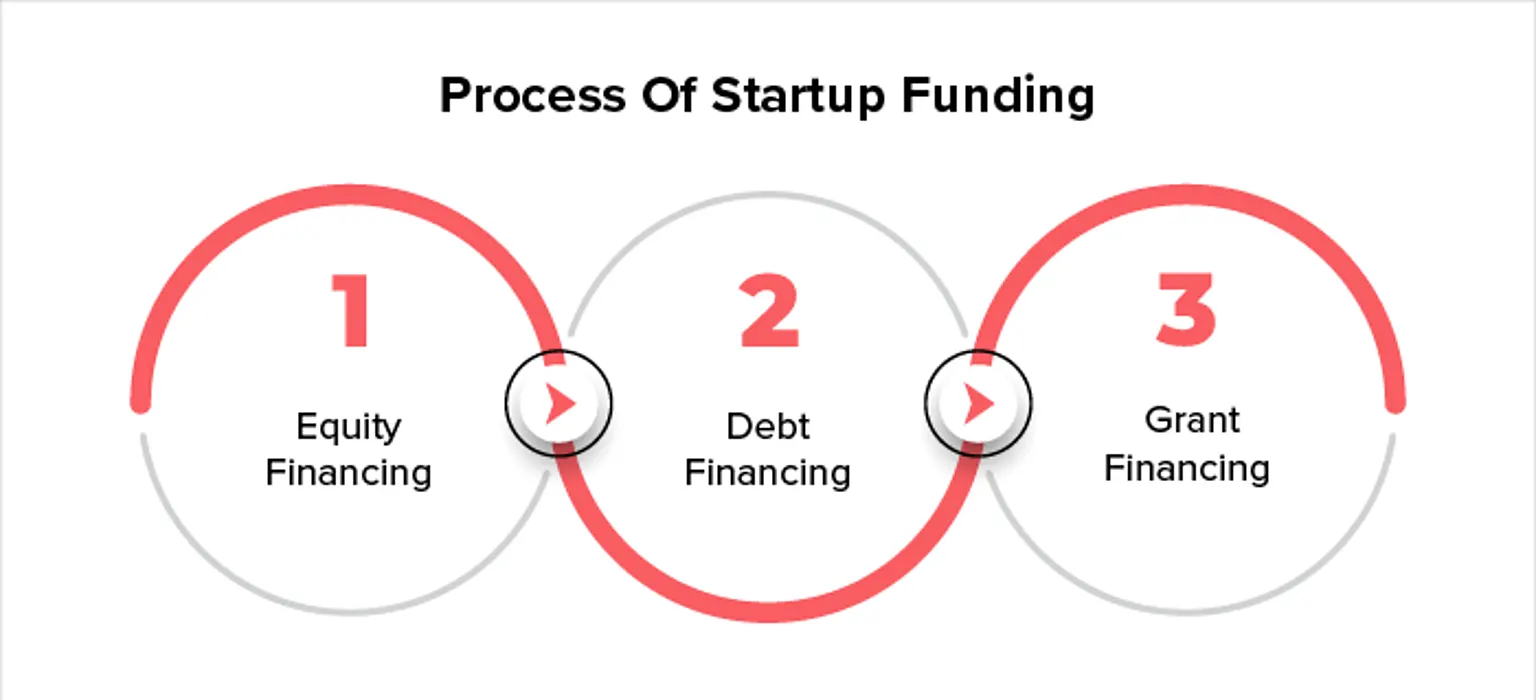
What is the one thing businesses need to get a head start? Funds.
You may have the idea and strategy to execute your startup, but you need resources to get it running. A lack of funds can put your startup journey to a standstill.
Almost 10% of startups fail within the first year of starting their business, 16% of which is due to financial issues.
If you aspire to take your startup toward success, it is crucial to streamline startup funding options.
Want to learn how startup funding can help you? Dive into this blog to find out. Explore startup funding basics and learn how to get funding for startups.
What is Startup Capital?
Startup funding or startup capital is the financial assistance required to start your business operations. Taking your business idea to the market requires finances. Startup funding is the process businesses use to gather money from various sources to establish their business.
As a startup, you will face significant upfront costs in the initial stages, even before you generate any revenue. Startup fundraising helps you acquire resources to fulfill these expenses until your business becomes self-sustaining.
Getting investment for a startup can assist at every growth stage for product development, team expansion, and more.
So, what are the different ways businesses can find start-up funds? You can receive funding for startups from different sources like banks, investors, private investment from friends or family, startup accelerators, and incubators.
Raising capital for startups helps businesses scale faster without worrying about limited resources.
Funding for Startups- Why Do Businesses Need It?
Growing a business requires you to fulfill several tasks that need financial assistance. Which tasks require startup funding depends on the development stage your business is undergoing.
1. Early stages: When your company is taking the initial steps, you may need startup fundraising for :
- Market research
- Product development
- Hiring resources to build a team
- Operations management tools
- Office space
- Strategy development
- Licenses and certifications
- Legal and consulting services
2. Growth Stages: When your company has started operating successfully, the next step is making profits. You will need more resources to grow your business and, hence, the necessity for raising money for startup.
At this stage, you can utilize funds for:
- Improving your offerings
- Growing your team
- Executing sales and marketing strategies to acquire more customers.
How Does Startup Funding Work?

Process Of Startup Funding
- Equity Financing
- Debt Financing
- Grant Financing
A typical process of startup financing looks like this-
You need to acquire more resources to develop a product like a mobile app, which requires money. So, you start thinking about how to find investors for mobile app. You research online and other sources and shortlist some investors. Then you acquire your company’s valuation to start the funding rounds to attract them.
The valuation will include the following factors-
- Your startup's maturit
- Management
- Market size
- Track record
- Profit
- Risk
An investor who believes in your business idea will provide start up investment after understanding your company valuation. You use their funding to scale your business and repay the investment.
This funding process can be broadly classified into three categories, each of which works differently-
1. Equity Financing
In this type of funding for startups, you share a part of your company’s ownership in return for the capital. Giving ownership percentage in your company is called equity sharing.
You can sell equity through the following process-
- Create a specific number of shares before raising equity.
- Set share price according to your company valuation.
- Sell equity on a price-per-share basis.
- Sign the deal documents.
- Issue share certificates in the investor’s name.
2. Debt Financing
You receive the funding as a loan, which you repay with interest. Debt financing helps businesses meet their financial requirements without losing equity. You can even use a combination of debt and equity to get funding for startup.
Taking smaller loans with manageable repayments is advisable.
Raising startup capital through debt financing requires you to connect with organizations offering business loans. You get the startup funding with an agreement to repay it within a pre-defined period.
3. Grant Financing
The government funds startups to encourage new innovative ideas across industries. It is one of the best startup fundraising strategies as you do not need to repay, nor does the funding convert to equity.
You can explore grants online and apply for the one your company qualifies for.
Different Types of Startup Funding
Several types of funding for startup business come under the categories discussed above. These funding types have their specific requirements, advantages, and considerations. Here are the popular types of sources of funding for businesses that can help them grow-
1. Venture Capital (VC) Funding
Venture capital comes from investment firms or venture capitalists that invest in promising businesses. They usually pool the funding from private investors, investment banks, institutions, etc., called limited partners.
You can acquire venture capital in return for equity ownership.
Apart from start up financing, venture capitalists provide extra support with their expertise and extensive network.
2. Angel Investors
Angel investors are individuals who offer funding for startups for equity shares or convertible debt. This may include :
- Wealthy business people who are willing to support new businesses.
- Professionals exploring profitable options to invest their money.
- Friends or family.
You can acquire start up investment from one angel investor or an angel group collaborating to support growing businesses.
3. Crowdfunding Platforms
Crowdfunding is fundraising for startups from many people, mostly through online platforms. It has several models, like
- Reward-based crowdfunding, which offers exclusive perks for the investors.
- Equity crowdfunding that gives equity shares.
- Donation-based crowdfunding, where people invest without expecting any rewards in exchange.
4. Bootstrapping
Investing your savings for raising startup capital is called bootstrapping. It includes :
- The initial capital you saved for starting the business.
- The revenue generated through the business itself.
Although bootstrapping lets you keep complete ownership of your startup, it may impact your business’s growth speed.
5. Incubators and Accelerators
These programs offer initial funding for startups. Incubators help with resources like office space, mentorship, and networking opportunities. Accelerators offer opportunities for rapid growth, like planning a demo day where founders can meet and pitch to investors for startup fundraising.
6. Private Equity Firms
Private equity firms mostly provide start up financing to established businesses. In exchange, they seek a large ownership share. They also extend their efforts in managing the business.
7. Grants & Loans
The government grants subsidies to small businesses to encourage innovation across industries. You can check your eligibility for different government schemes to utilize their support.
Additionally, private and non-profit lenders also offer funding for startups in the form of loans. Unlike standard business loans, these loans have simpler agreement terms and are usually meant for small businesses.
Best Tips to Secure Funding for Startup
Here’s how you can boost your chances of increasing startup funding sources:
1. Calculate How Much You Need
With several funding options, you need to identify the one suitable for your business at a specific point. So, before contacting investors or applying for grants and loans, identify the amount you need to achieve your targets.
You can go for a business loan or grant scheme if you want a small sum, but it may not help if you require larger funding. In that case, you must contact private equity investors or angel investors. Knowing your requirements will help you proceed in the right direction.
2. Develop a Business Plan and Determine Company Valuation
Most investors and lenders will want to know about your vision for the company. Your business plan must reflect how much effort you are putting into it. It must include :
- Your operating model
- Funding needs
- Complete market research
- Competitive analysis
- Marketing strategies
- Plan for revenue generation
It will help you build confidence with the investors.
3. Assess Your Financial Standing
Knowing your financial status can help you take the right approach to getting investment for a startup. So, compile the documents you will need to analyze your financial health. It may include-
- Personal tax returns
- Bank statements
- Business financial statements
- Legal documents like commercial lease papers or profit and loss statement
- This will let you create revenue projections to determine funding requirements
Determine the Ideal Funding Option for Your Startup
Extensive research will be needed to identify which startup fundraising option is best for your business. While researching, ensure the investors you want to pitch are interested to invest in your industry. Additionally, plan how to approach the investors and determine how many shares you can offer.
Build a Repayment Plan
Before you accept the capital, it is vital to have a repayment plan. Determine how much payment you must make and work your way to fit that into your budget.
It cannot help you grow your business if you cannot repay your loans.
Wrapping Up
Startup funding empowers budding entrepreneurs to give shape to their innovative ideas and turn them into successful ventures. You may need a huge sum to kickstart your business or a smaller amount to expand your startup. In any case, thorough research on funding options and analysis of your financial health is crucial.
Explore all the options and pick the one that will be ideal for your startup at the current stage of development. You can also research what type of funding works best in your industry to make the correct choice.
Frequently Asked Questions
-
How do you find investors for startup?
You must first determine what funding your startup needs: venture capital, business loan, or other options. You can then research well into the investors that can help you with that funding.
-
Why do startups not get funds?
-
Can startups thrive without funding?










